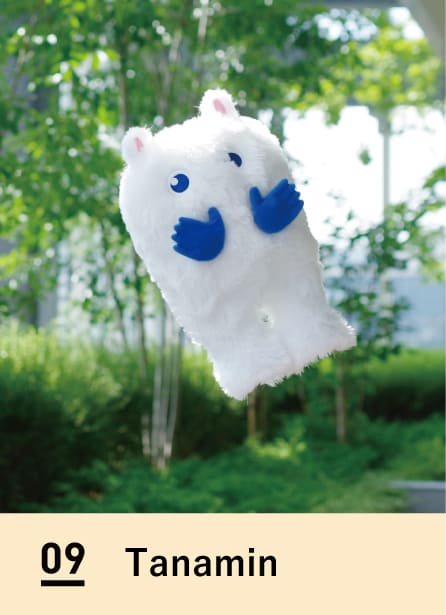
Employee Introduction

Turning compounds into medicines that are easy for patients to take and that have maximum efficacy

Researcher (pharmaceutical research)
2016 — Entered the Company after graduating from the Department of Pharmaceutical Sciences
Global manufacturing that is close to patients
Turning compounds, the seeds of new drugs, into medicines that are easy for patients to take and that have maximum efficacy — this is the role of formulation research in which I am engaged. In formulation research, we design pharmaceutical formulations based on an adequate understanding of the various properties of compounds for the benefit of patients who need medicines. We also optimize manufacturing methods to avoid manufacturing incidents so that we can stably supply drugs. In this way, formulation research is a job where we can be closely engaged in manufacturing, among other pharmaceutical jobs. This is one of the reasons why I wanted to work in formulation research. My desire to work as close to patients as possible and where I can feel that the medicine I have created is making a contribution has not changed.
Currently, I am in charge of solid formulations of small molecule drugs. In my third year at the Company, a drug in the diabetes area, the first drug to which I was assigned, was successfully approved. This was a valuable experience providing society with a drug that I had worked on. Since then, I have been in charge of new drug projects in the rare disease field. This is a global project that will simultaneously conduct clinical trials in Japan, the United States, and Europe. And I occasionally have exchanges with overseas members in preparation for approval applications. I am in charge of formulation research for this project, and am working hard to deliver this drug to patients around the world as soon as possible.
Regarding drug development in this rare disease area, we received a message from the group of patients who participated in the clinical trial that they could feel the effects of the new drug and that they were longing for its approval. This made me keenly feel that our work could contribute to patient treatment. I will definitely continue working to acquire approval for the new drug and supply it to patients in need around the world.

Technological transfer leveraging our adjacent laboratory and plant
In formulation research, we first start researching formulations and manufacturing methods on a small scale at the laboratory level, and then gradually scale up and conduct studies using actual production equipment at the factory, before transferring the manufacturing technology to the factory. This technological transfer and upscaling is extremely important for satisfying the stringent standards concerning safety and quality required for pharmaceutical products, and is also an important key to drug development.
For the product we are currently working on, even more difficult conditions have been added to this technology transfer. Because it is a drug for a rare disease, the compound is rare and the amount available for research was limited. Therefore, we repeated theoretical simulations and discussions with researchers to optimize the experimental process in order to achieve upscaling via the minimum required experiments. In addition, during this technology transfer, we held many meetings with the engineers at the target factory and shared our knowledge. At the Onoda office where I work, the research institute and factory are adjacent to each other, so one of the features of the office is that if something happens, I can immediately have a meeting or be present at the manufacturing site. This open and agile environment for discussion and cooperation between the laboratory and the plant have enabled the successful completion of this highly difficult technology transfer.


Pursuing the development of a new production method leveraging the comprehensive power of the Group
Mitsubishi Tanabe Pharma provides an environment that proactively supports the aspirations of employees. At the research institute I belong to, in addition to the products we are responsible for developing, we have a system where you can propose your own themes and take on the challenge of researching new technologies. At present, I am engaged in research on continuous production technology, a new manufacturing method for pharmaceuticals.
Up until now, pharmaceutical manufacturing has been based on a batch production method, in which certain amounts of drugs are manufactured in batches, as delicate techniques are required to meet the required quality level. The continuous production method we are working on is used in chemical products, foods, etc., and allows for more flexible manufacturing than batch production, and is expected to improve production efficiency and reduce costs.
In the pharmaceutical industry, other companies are also working on research into continuous production technology, but the challenges vary due to differences in manufacturing equipment and other factors. In the promotion of this research, I believe that our advantage is the comprehensive power of the Mitsubishi Chemical Group. By cooperating with engineers from Group companies, we can introduce new concepts and innovative ideas that we would never have thought of as a pharmaceutical manufacturer, and this also serves as a source of inspiration. I hope to establish this continuous production technology as early as possible and contribute to the stable supply of pharmaceutical products.
- Career step
- 2016 Involved in formulation research related to drugs in the diabetes field and experienced product launch.
2018 Participated in a global development project in the rare disease field. Currently working as the manager of formulation research.
* The affiliation and description in the article are those at the time of interview.













